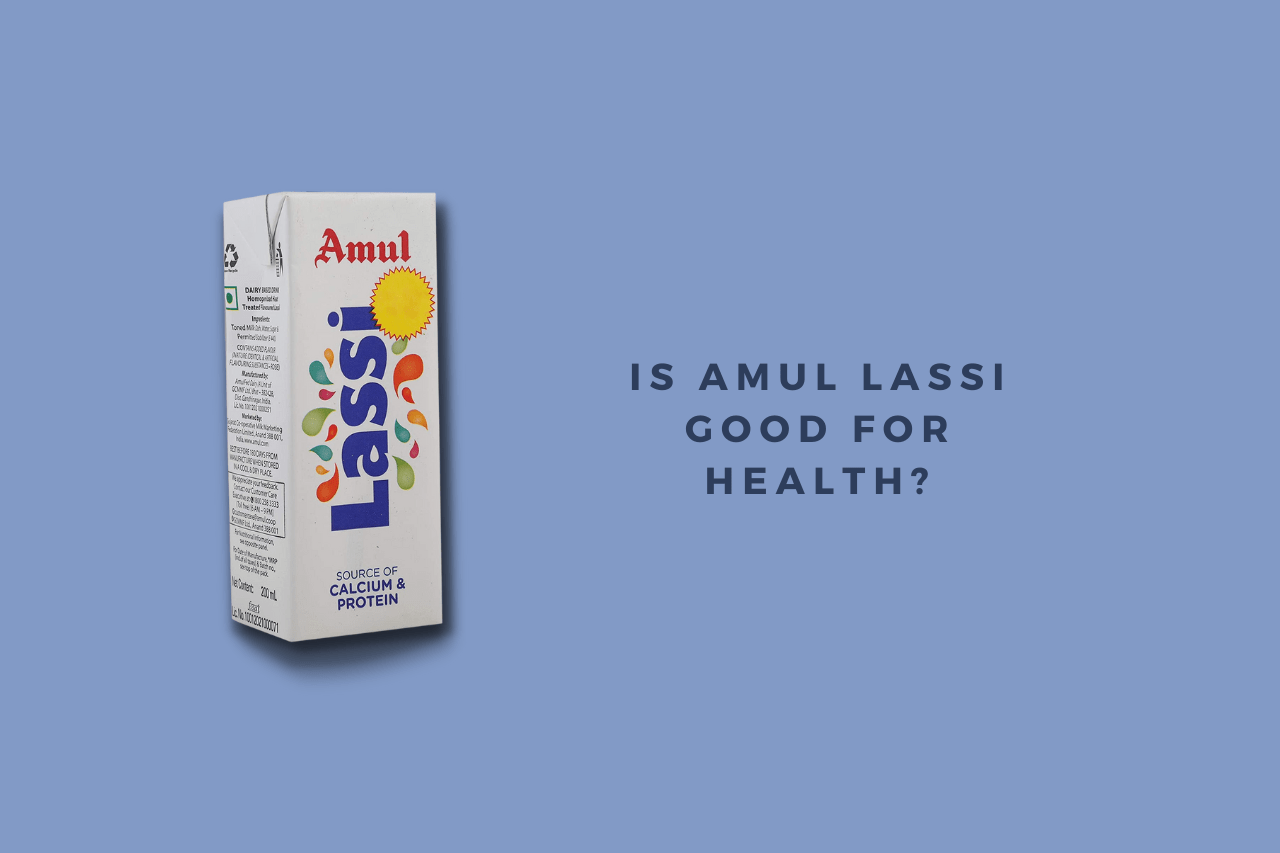Lassi is a traditional yogurt-based drink made by blending yogurt with water, milk, spices, and sometimes fruit. It is mainly consumed on a hot day or after a meal as it is believed to be good for digestion.
However, there are times when making lassi at home seems like too much effort or when it’s unavailable outside. In those cases, many of us turn to tetra-pack lassi.
One such popular tetra-pack lassi is Amul lassi.
Amul lassi is a popular lassi made from curd(toned milk), water, sugar, and other additives.
And while Amul lassi tastes delicious and refreshing, is it good for your health?
Read on to find out.
Also read: Is Sting Energy Drink Good For Health? Everything You Need To Know
Amul lassi and ingredients
The ingredients list of Amul lassi is very short. It is made from Toned milk dahi with water and sugar. Additionally, it has a stabilizer(E440) and natural & artificial flavors.
That’s it.
If we look at the healthiness of these ingredients, they are all FDA-approved and safe to consume in moderation.
Amul lassi and nutrients
Although Amul lassi claims to be a good source of calcium and protein on the front label, the nutrition label tells a different story.
A 100gm serving of Amul lassi provides a mere 2.1g of protein, and calcium content is less than 10% of the daily required amount.
Although the calorie content is low, they are all empty calories, primarily from sugars.
Amul lassi and sugar
Sugar is the main reason that steals the healthy tag from the Amul lassi.
A 100gm serving of Amul lassi comes with 12g of sugar. If you drink the smallest pack in one go, which is 200ml, you will consume a staggering 24g of sugar.
This amount of sugar exceeds 80% of the daily limit for adults, and for children, this is beyond 100%.
Drinking Amul lassi daily, or even 3-4 times a week, can add an unhealthy amount of sugar to your diet, thus increasing the risk of diseases such as fatty liver, obesity, tooth decay, diabetes and heart problems.
Amul lassi and weight loss
If you are on a diet or trying to maintain a healthy weight, Amul lassi can sabotage your efforts.
This is because Amul lassi is too high in sugar, which makes it unsuitable for weight loss.
Is Amul lassi better than traditional homemade lassi?
Any packaged food cannot rival pure traditional food – this applies to lassi as well.
Compared to traditional lassi made at home, Amul lassi falls short in terms of nutrients. Homemade lassi contains a wealth of vitamins like B1, B2, B3, B12, C, and D, which aren’t present or mentioned on Amul’s nutrient label.
Furthermore, when we make lassi at home, we have complete control over the ingredients. This means it’s not generally high in sugar, making it an excellent choice for weight loss.
Who should avoid consuming Amul lassi?
Amul lassi is usually safe for most people to drink moderately. However, there are a few groups of people for whom it would be best to avoid it entirely.
This includes lactose intolerant, diabetics, overweight, obese and those looking to lose weight and cut down on sugar.
Final words: Is Amul lassi good for health?
After examining Amul lassi ingredients and nutritional value, it is evident that while it may be delicious and refreshing, it is not good for health. This is because it contains way too much amount of sugar(even in small servings).
It would be best to stick to traditional lassi and not to tetra-pack lassi.
Found this information helpful? Share it.
Here are a few other posts that might be helpful for you.





